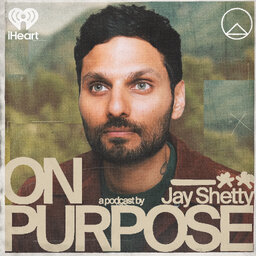Is Your Ex Keeping You From Finding Real Love? 5 Hidden Signs You Are Missing
Do you ever feel stuck in the same dating patterns?
Do you think your past relationship is still affecting you?
Today, Jay unpacks the powerful and often hidden influence our past relationships have on our current dating pattern. Drawing from psychological research and personal reflection, Jay explores the concept of repetition compulsion—the unconscious tendency to recreate emotional patterns from our past, especially in romantic relationships. He reveals how our early attachments, particularly those with our parents and first loves, shape the way we love, what we fear, and even who we are drawn to.
With compassion and clarity, Jay outlines the five key signs that your ex—or more accurately, your past relationship wounds—might still be holding the steering wheel in your current dating life. He then re-introduces the attachment theory, helping them identify their own attachment styles—whether anxious, avoidant, or secure—and how these styles play out in their romantic behaviors. His message is clear: you are not broken, you are patterned—and patterns can be changed.
In this episode, you'll learn:
How to Recognize When Your Past Is Sabotaging Your Love Life
How to Break the Cycle of Repeating Unhealthy Relationship Patterns
How to Tell the Difference Between Familiarity and Safety
How to Avoid Self-Sabotaging Healthy Relationships
How to Reparent Yourself and Meet Your Own Emotional Needs
This episode is both a compassionate wake-up call and a hopeful guide for anyone seeking to build healthier, more fulfilling love. Whether you're recovering from a breakup or simply ready to stop repeating the past, this is the episode that could shift everything.
With Love and Gratitude,
Jay Shetty
Join over 750,000 people to receive my most transformative wisdom directly in your inbox every single week with my free newsletter. Subscribe here.
Join Jay for his first ever, On Purpose Live Tour! Tickets are on sale now. Hope to see you there!
What We Discuss:
00:00 Intro
01:16 How Past Relationships Shape Your Dating Future
02:39 We Recreate Familiar Emotional Patterns In New Relationships
09:18 Five Signs Your Past Relationship Is Affecting You
12:09 What Are The Different Types Of Attachment Styles?
22:35 The Path To Earned Security
In 1 playlist(s)
On Purpose with Jay Shetty
My name is Jay Shetty, and my purpose is to make wisdom go viral. I’m fortunate to have fascinating …Social links
Follow podcast
Recent clips

Sales Expert Shelby Sapp: The Simple Sales Framework You Can Use in Work, Money, and Relationships (Follow THIS Method to FINALLY Get The Life You Deserve)
1:41:31

Stop Saying Yes When You Want to Say No! (Follow THESE Clear Boundaries to Protect Your Energy)
23:09

John Edward: Stop Trying to “Move On” After Loss (Use THIS Daily Practice to Make Peace Without the Answers)
1:29:30
 On Purpose with Jay Shetty
On Purpose with Jay Shetty